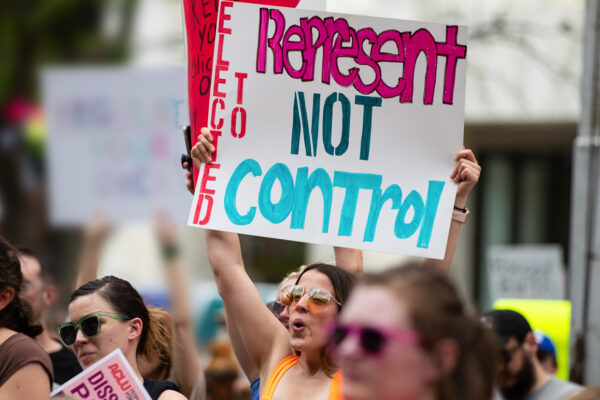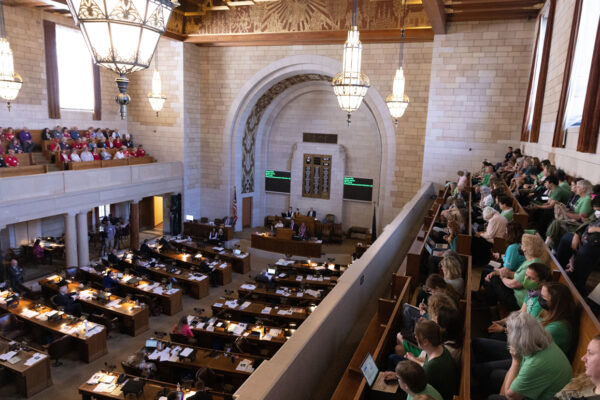Abortion is legal in Nebraska, but access is once again under threat. Anti-abortion state senators recently introduced LB 626, an extreme bill that would ban abortions at around six weeks of pregnancy.
The fact is most Nebraskans support abortion access. The freedom to control our bodies, lives and futures is vital to all of us, and we and thousands of Nebraskans are ready to do all we can to defend that freedom.
Here are six things to know about the extreme six-week ban that has been proposed.
1. It’s effectively a total ban on abortion.
LB 626 would ban abortions at around six weeks of pregnancy, just two weeks after a missed period. Many people who need abortion care do not even know they are pregnant by that point. For those Nebraskans, this would have the same effect as a total ban. Even Nebraskans who know they need abortion care would face enormous challenges to accessing care, ranging from appointment availability to travel considerations to the state-mandated, 24-hour waiting period among many other restrictions on care that already exist.
2. It would threaten Nebraskans’ health.
Since the Dobbs decision, we have seen the catastrophic impacts of extreme abortion bans across the country. People have had to travel hundreds of miles for needed abortion care. In that time, states have seen serious pregnancy complications significantly increase. The bottom line is that no one should face the life-altering consequences of being denied care or forced to delay essential health care.
3. The bill’s exceptions aren’t workable solutions.
Despite assurances that this legislation would allow abortion care for medical emergencies and for survivors of sexual assault, it’s important to remember that exceptions rarely make it possible for someone to get abortion care in their community. Instead, these exceptions could force pregnant Nebraskans to wait until their health condition worsens to the point where their life is clearly at risk or to subject themselves to the trauma of disclosing a sexual assault. Nebraska advocacy organizations that support sexual assault survivors oppose abortion bans for exactly that reason: they dictate the terms of how someone must process their trauma to get the care they need.
4. We know where the harm would fall hardest.
If state senators pass this extreme abortion ban, we will see the brunt of the harm fall on Black women and other people of color who already face a severe maternal mortality crisis due to factors including lack of access to health care, biases and discrimination within health care systems and structural racism. Similarly, young Nebraskans and Nebraskans who are financially struggling will be left with few and difficult options if they are unable to get the care they need in Nebraska.
5. Its supporters say they have a plan for supporting pregnant Nebraskans. That’s not true.
Anti-abortion state senators are pairing this extreme six-week ban with LB 606, a bill that would financially incentivize donations to anti-abortion “crisis pregnancy centers” that are known to share misleading and false information with Nebraskans to dissuade or prevent them from accessing abortion care. For example, one woman we spoke with while reporting on this topic said staff told her that she was a full month farther along into pregnancy than she actually was.
6. We need 17 state senators to stop the ban.
State Senators Albrecht, Aguilar, Ballard, Bostelman, Brewer, Briese, Clements, DeKay, Dorn, Dover, Erdman, Geist, Halloran, Hardin, Holdcroft, Hughes, Ibach, Jacobson, Kauth, Linehan, Lippincott, Lowe, McDonnell, Moser, Murman, Riepe, Sanders, Slama, and von Gillern cosponsored LB 626. That’s 29 state senators. They need 33 to break a filibuster, and we need 17 to hold a filibuster. Whether or not your state senator is on that list, contact them and urge them to respect their constituents’ reproductive rights.



